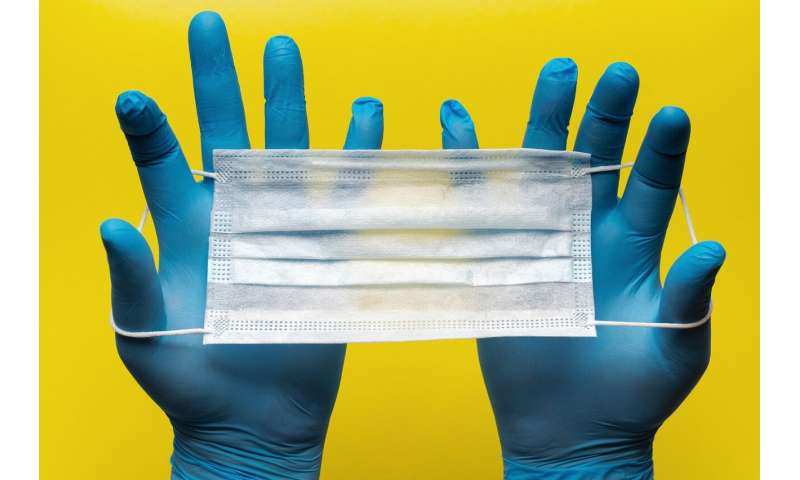
After five days of intense body aches, dizziness and moments when he struggled to catch his breath, John Craven thought he had finally beaten COVID-19.
Craven, a 41-year-old political reporter at News 12 Connecticut, was looking forward to easing back into his regular routine. On Sunday, he even did a workout video in his living room.
But hours later, his symptoms came roaring back. “By that night, I could barely breath,” Craven said. “It’s unpredictable.”
More than 3,000 Connecticut residents have tested positive for the new coronavirus. But health officials say that number is misleading because many infected people have not been tested.
Eighty-five people in Connecticut have died of complications related to COVID-19, as of Wednesday, according to state officials. The virus tends to be more severe in older patients, especially those with underlying health conditions. But worldwide, thousands of younger adults have also been infected and some have died.
The state does not have firm number on how many people in the state have recovered from the virus.
“We’re looking at ways that we can possibly track that,” said Josh Geballe, Gov. Ned Lamont’s chief operating officer. “But this is another thing that would have to be manually tracked, we don’t get … automated reporting from the hospitals. And as you know, a lot of people are self-recovering at home, so we don’t have reporting on that now.”
The range of symptoms and uneven path to recovery has been documented by physicians.
“People seem to do better over the first few days then there’s this second wave that comes,” said Dr. J. Samuel Pope, director of the medical intensive care unit at Hartford Hospital.
“There is this sort of twin peak,” he added. “Even our patients we’ve had in our hospital who have been there the longest, they seem to get better and then there’s worsening that occurs.”
Craven, who lives in New York City, has no underlying health issues. He believes he may have contracted the virus about two weeks ago; several of his friends have also fallen ill.
His symptoms started on March 16 and included a light sore throat, a dull headache and a feeling that he couldn’t catch his breath. But he had no fever so he shrugged it off.
Two days later, “things went downhill,” Craven said. He was overcome with dizziness and began spiking a fever. He went to an urgent care clinic near his home but couldn’t get tested until he returned the following day. (The positive result finally arrived seven days later.)
Meanwhile Craven said he began to feel better. Then a second round of symptoms hit. “It tricks you,” he said. “You think you’re free then it comes back.”
Craven said he is finally feeling better. He is able to work from home, where he remained in quarantine as of Monday afternoon.
Craven’s uneven path to full recovery mirrors that of Carol Engelman, who also contracted COVID-19. Both Engelman and her sister, state Rep. Jane Garibay, fell ill earlier this month.
In a video on Facebook posted on March 25, Engelman described the progression of the illness. “I started it off with feeling a little lightheaded,” she said. “Within an hour, I had a temperature and I was in bed with body aches that were beyond my thoughts.”
Engelman, of Windsor, characterized her case as mild, with a fever that broke quickly and a low-level cough. But even in its less potent form, the virus packs a whallop, she said.
“I was exhausted,” Engelman said. “I’d wake up and I’d feel better, so I’m thinking I can do something. I’ll clean a little bit, I’ll organize, and then it would wipe me out and I’d be right back in bed.”
Her advice to anyone who contracts COVID-19: “When you get this, plant yourself in your bed and stay there.”
For Garibay, the past two weeks have been rough. And she’s not done yet.
Garibay, whose district includes Windsor Locks and part of Windsor, said she experienced excruciating body pain, fever and a metallic taste in her mouth. Tuesday was the first day she ate more than one meal; she has lost 13 pounds.
“I would say mine was medium. I didn’t end up in the hospital overnight,” Garibay said. “My fever broke and I’m on the mend.”
Garibay, who is 64 and a breast cancer survivor, is self-quarantined for at least another week. She must be fever-free for three days and symptom-free for seven before she can venture out.
That’s especially important because she and her husband, Bernardo, are guardians for their niece, Jenny Blair, who is 40 and has Down syndrome. Blair has also had several heart surgeries, leaving her more vulnerable to the virus.
Garibay, a Democrat who is running for a second term in office, said her niece’s health is her major concern.
“Think about it, is it worth subjecting your friends and family to this?” she said. “It’s not just about one person. Stay home, stay safe.”
Garibay said she has tried to remain engaged with constituents during her illness and once she’s fully recovered, she said she’s looking forward to getting out and helping others.
Source: Read Full Article
